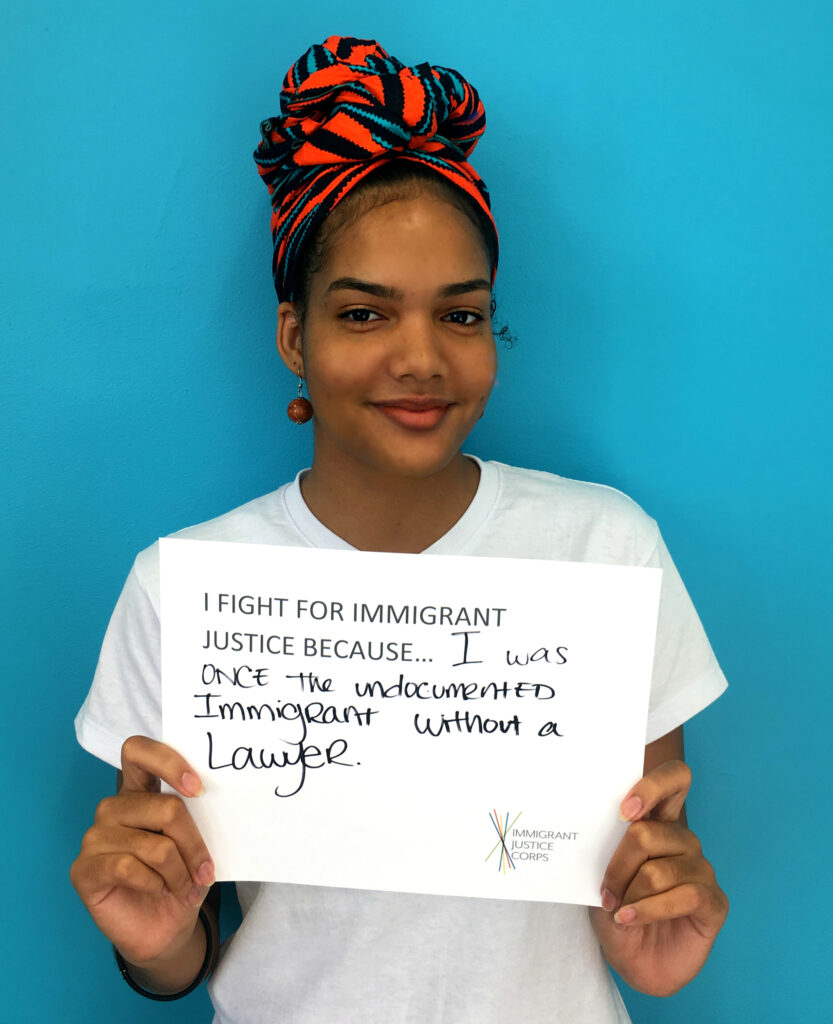A Look Inside Fall Training for the Class of 2020
Our Class of 2020 Fellows have officially begun their Fellowships! Before joining their host organizations, every new class begins with three weeks of intensive training designed to prepare them with the tools and expertise they need to best serve their clients.
Due to COVID-19 the training is being held virtually this year – and our first session is happening right now! IJC’s Training and Capacity Building Manager, Sam Palmer-Simon, has been hard at work to make this experience as educational and fun as it can possibly be. We were able to catch up with him in between training sessions for an update. Check out the interview below.
What is unique about this training period for IJC Fellows?
Under normal circumstances, we gather in-person in New York City to learn as a community. Sadly, that can not happen this year, but we are doing everything within our power to maintain our rigorous standards and to encourage a sense of community for our incoming Fellows.
The training timelines for Community Fellows and Justice Fellows have also changed. Historically, both groups have the same schedule for the first two weeks of training, then branch out to distinct tracks in order to build the unique knowledge and skills of Community and Justice Fellows. However, due to the many shifting state bar exams dates, our Justice Fellows will not begin training until October 14, whereas the Community Fellows began training on September 1.
Regarding those changes to state bar exams, IJC has put our organizational support behind a collaborative letter advocating for jurisdictions to offer some form of diploma privilege to their law graduates. We stand with other organizations in advocating for more egalitarian access to the practice of law. The communities we serve and are a part of deserve as much and more.
How will the virtual training work this year?
Although we wish all 2020 Fellows could be together right now, we choose to see these programmatic alterations as an opportunity to develop new ways of preparing the new Fellows to enter the field.
Our approach to training has always been exhaustive and comprehensive. This year, we have moved from a 100% live presentation format to something entirely different and exciting. Our Fellows are attending 1-2 live sessions every day, which are facilitated by top-notch immigration experts. At the same time, they are provided access to a vast learning library that supports and supplements the live material. The learning library includes readings, videos, quizzes, and other activities meant to foster a deep understanding of immigration law. An additional benefit is that we are recording and editing the live presentations for future reference.
With this new approach, the Fellows are able to soak up the sizable amounts of information we are exposing them to as their schedules and individual capacities allow. We’ll be measuring the efficacy of this new training regimen in real time, through pre- and post-training surveys, to see how this can impact training for years to come.
What do Fellows learn during training?
Everything from seminars covering the overarching structure and history of immigration law to a series of sessions on client-centered interviewing to a tour of the essentials of practice around several key areas of immigration law.
We are particularly excited to have been able to include the breadth of our community in this process, by including offerings facilitated by several alumni, current Fellows, and an IJC board member. Just last week, two IJC alumni joined us for a training on “Caring for Yourself as an Immigrant/First Generation Representative.” They graciously shared their experiences and knowledge around the many challenges and benefits of being a directly-impacted advocate with incoming Community Fellows.
How does this training prepare Fellows for the work ahead?
The fall training provides the essential foundation that Fellows will rely upon as they begin working with clients. The learning they undergo in these first stages of the Fellowship provides them with the resources, context, and language to help them support themselves, one another, and their clients, while creating a reference library that they can use to reinforce their grasp of the many intricacies of immigration law and policy.
If you haven’t already, be sure to meet the incredible Class of 2020 Justice Fellows and Community Fellows to learn more about what led them to IJC and where they will be working.
